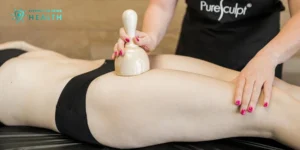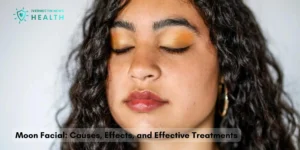How to Fix Stunted Hair Growth: Struggling with stunted hair growth can be frustrating. Understanding the reasons behind this issue and exploring effective remedies is key. From dietary changes to stress reduction techniques, addressing stunted hair growth requires a holistic approach. Let’s delve into practical tips and natural solutions to revitalize your locks and promote healthy hair growth.
What Constitutes Hair Loss?
Hair loss is a natural part of the hair growth cycle. However, when shedding exceeds normal limits, it might indicate an issue. Various factors contribute to hair loss, including genetics, hormonal changes, medical conditions, and lifestyle habits.
How To Regrow Thinning Hair
- Reduce Stress
Stress is a significant contributor to hair loss. Incorporating stress-reduction techniques like meditation, yoga, or regular exercise can significantly impact hair health. - Make Dietary Changes
A balanced diet rich in proteins, vitamins (especially B-complex vitamins), and minerals such as iron and zinc can promote hair growth. - Consider Supplements
Supplements like biotin, collagen, and omega-3 fatty acids are known to support hair growth and strengthen hair follicles. - Use a Topical Treatment
Topical treatments like minoxidil or specific serums can stimulate hair follicles, encouraging hair regrowth. - Try Essential Oils
Essential oils such as rosemary, peppermint, and lavender have shown promising results in promoting hair growth when used in scalp massages or treatments. - Be Gentle With Your Hair
Avoiding tight hairstyles and being gentle while brushing or styling prevents unnecessary stress on hair, reducing breakage and thinning. - Limit Bleaching or Coloring Your Hair
Chemical treatments like bleaching and excessive coloring can weaken hair, leading to breakage and thinning. - Avoid Excessive Heat Styling
Excessive use of heat styling tools damages hair, causing it to become brittle and prone to breakage. - Treat Dandruff
Addressing dandruff issues with appropriate shampoos or treatments maintains a healthy scalp environment for hair growth.
Medical Treatments for Thinning Hair
In severe cases, medical interventions such as prescription medications or surgical procedures might be recommended. However, these options should be discussed with a healthcare professional after a thorough evaluation of the condition.
How To Disguise Thinning Hair
Styling tricks like volumizing products, strategic haircuts, or hair accessories can create an illusion of fuller hair, providing temporary solutions.
When To Contact a Healthcare Provider
It’s advisable to seek professional advice if hair loss persists despite implementing natural remedies or if there are sudden changes in hair thickness or texture. Consulting a healthcare provider helps identify underlying issues and suitable treatments.
Review
In conclusion, understanding the causes of hair loss and implementing natural remedies can significantly impact hair regrowth. While natural treatments offer beneficial solutions, knowing when to seek professional help is equally crucial to addressing underlying issues effectively.
FAQs
1. How to fix stunted hair growth?
To fix stunted hair growth, focus on stress reduction, a balanced diet, gentle hair care, and topical treatments. Consult a healthcare provider for personalized advice if issues persist.
2. Are essential oils effective for hair growth?
Essential oils like rosemary, peppermint, and lavender have shown promising results in stimulating hair growth when used consistently and appropriately.
3. Can coloring hair cause thinning?
Excessive coloring or bleaching can weaken hair, leading to breakage and thinning over time. Limiting chemical treatments helps maintain hair health.
4. What dietary changes aid hair growth?
Incorporating a diet rich in proteins, vitamins (particularly B-complex), and minerals like iron and zinc supports healthier hair growth.
5. When should I seek medical help for hair loss?
If natural remedies don’t yield results or if there are sudden, drastic changes in hair thickness or texture, it’s advisable to consult a healthcare provider for further evaluation and guidance.






